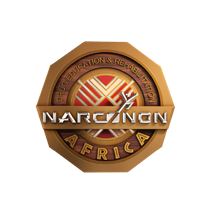Salvia Effects

Young people who use the herbal drug salvia divinorum may tell each other that it is safe, legal and just an herb. But by doing so, they are choosing to ignore the strong and dangerous effects of this drug.
Twenty-seven states have shifted this drug from legal status to banned because of severe problems that have resulted from its use. Most well-known damaging effect of using salvia was the death of Brett Chidester in Delaware. After this young man smoked salvia weekly for several months, he asphyxiated himself in 2006. When his car was searched, salvia was found.
In 2011, another young man killed himself after smoking salvia. In New York City, 21-year-old Ryan Santanna jumped off a 15th-floor balcony a few minutes after smoking salvia with his girlfriend.

The effects of a single use of salvia are very brief. Recommendations on using the drug with any degree of safety include making sure you have “sitters” or people to look after you. This is because the main effect of salvia is to detach a person from reality to a very great degree.
YouTube Exposes the Effects in a Vivid Fashion
It has become popular to film people using salvia and post the images to YouTube. In some videos, people lose complete control of their emotions and laugh helplessly until the high begins to wear off. But some people have an opposite reaction. They get very introverted and unhappy. These people are unlikely to ever use the drug a second time. It is notable that many of the videos on YouTube feature a person’s first use of salvia.
A person chewing or smoking the leaves of this plant sees hallucinations of bright lights and colors. He (or she) may lose the sense that he has a body which may be how Ryan Santanna lost his life. If he tries to move, the effects of the drug include stumbling around and falling. Some videos show a person who switches from one who can relate to his surroundings and the people he is with to someone who has no control at all of his thoughts or actions. This is why “sitters” are needed but even this support may not be enough to protect a person from harm.
Intense, Short LSD Trip?
There is so little scientific, analytical information that even researchers and legislators have had to rely on anecdotal information on the effects of the drug. One third-year college study who abused the drug said: “My whole perspective got sucked out of my own body and thrown into my friend. I became my friend. It was uncomfortable as if I was getting pulled out and sliced into him. Like I was getting cut as if I was playdough or clay and I was getting shaken violently.”
Salvia has been compared by many to LSD. It can be just as intense and convincing but is much shorter.
On its addictiveness, here, too it is difficult to make a judgment without reliable scientific information. Brett Chidester was reported to have said that he could not stop smoking the drug. Like LSD, it is possible that even if a person is not physically addicted to the drug, he could become dependent on its effects in other ways. He could rely on the drug to deal with unpleasant parts of life or depend on it to change his reality of the world. These habits could become drug dependencies. Without being helped with a rehabilitation program, it’s possible that a salvia user could remain addicted in this way.
Recovering from Salvia Abuse and Addiction
There are both physical and mental recoveries needed after a person has become dependent on a drug. He (or she) must clean up the effects of the drug on the body. Every drug leaves residues behind, trapped in fatty tissues of the body. Even years later, these residues can have a negative effect on a person’s outlook or decisions—sometimes even creating flashbacks as with LSD, PCP or other drug use. When a person goes through the Narconon drug and alcohol rehabilitation program, one phase of recovery utilizes sauna time, a strict nutritional regimen and moderate daily exercise to enable the body to flush out these residues. As the residues leave, a person regains the brightness that is naturally his without the lingering influence of past drugs.
What must happen then is that a person must learn to live a productive, enjoyable life again. There are specific barriers that must be removed, for example, a person must regain self-respect. He must learn how to find relief from the guilt of the past and know how to overcome problems or setbacks in the future.
There are many small steps that make up a complete recovery from addiction. Narconon programs around the world have been helping people take these steps, one after another, for five decades. Find out how these steps can help someone you care about make it all the way back to lasting sobriety.
References:
